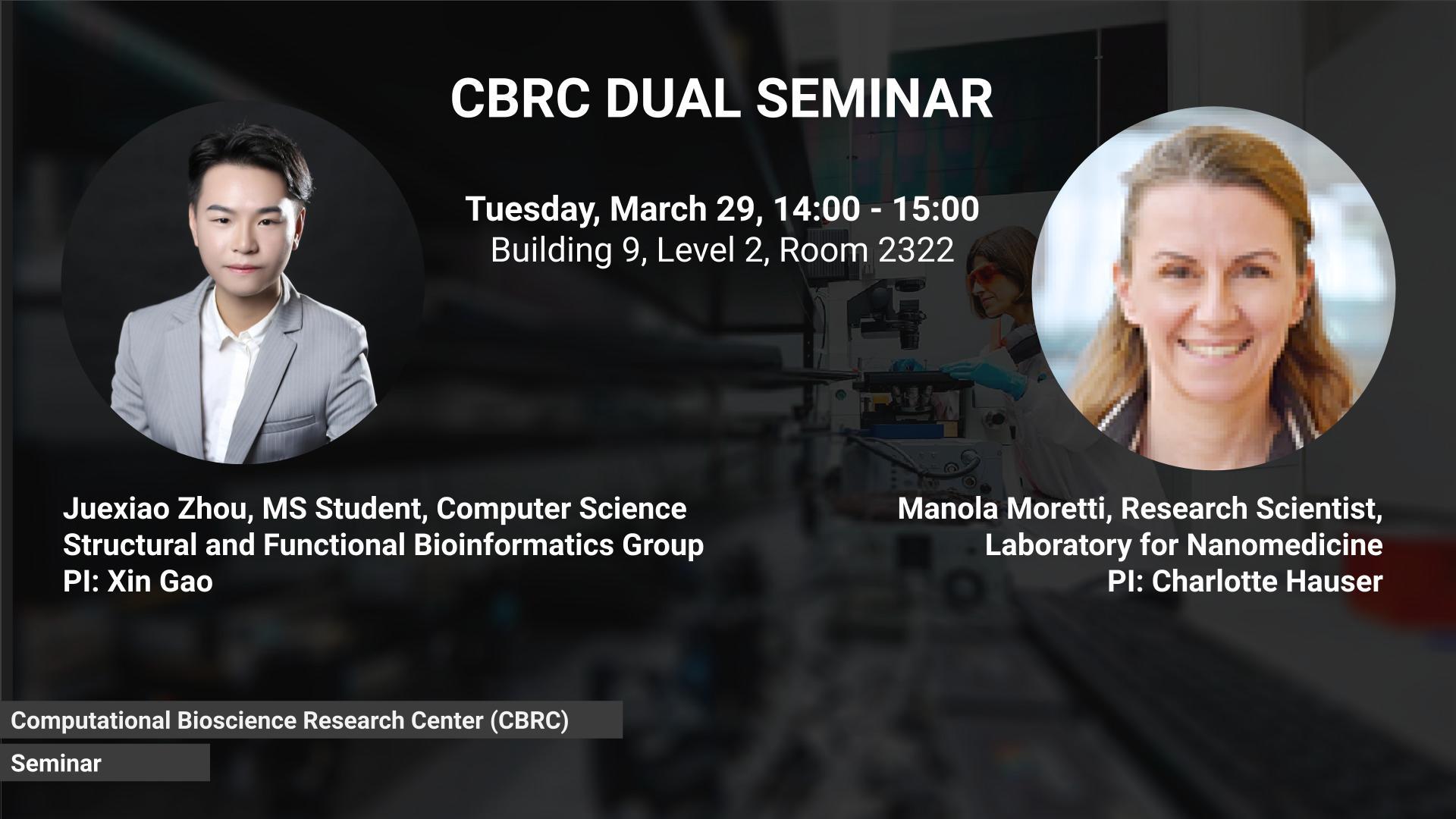Talk 1
Topic Title: PPML-Omics: a Privacy-Preserving federated Machine Learning system protects patients’ privacy from omic data
Speaker: Juexiao Zhou
Abstract:
Individual privacy in biology and biomedicine is emerging as a big concern with the development of biomedical data science in recent years. A deluge of genetic data from millions of individuals is generated from massive research projects in the past few decades, such as the Cancer Genome Atlas (TCGA), the 100,000 genome project and the Earth BioGenome Project (EBP) from high-throughput sequencing platforms. Those datasets may lead to potential leakage of genetic information and the privacy concern on ethical problems like genetic discrimination. Modern machine learning models towards various tasks with omic data analysis give rise to threats of privacy leakage of patients involved in those datasets. Despite the advances in different privacy technologies, existing methods tend to introduce too much noise, which hampers model accuracy and usefulness. Thus, we built a secure and privacy-preserving machine learning (PPML) system by combining federated learning (FL), differential privacy (DP) and shuffling mechanism. We applied this system to analyze data from three sequencing technologies, and addressed the privacy concern in three major tasks of omic data, namely cancer classification with bulk RNA-seq, clustering with single-cell RNA-seq, and the integration of spatial gene expression and tumour morphology with spatial transcriptomics, under three representative deep learning models. We also examined privacy breaches in depth through privacy attack experiments and demonstrated that our PPML-Omics system could protect patients’ privacy. In each of these applications, our system was able to outperform state-of-the-art systems under the same level of privacy guarantee, demonstrating the versatility of the system in simultaneously balancing the privacy-preserving capability and utility in omic data analysis. Furthermore, we gave the theoretical proof of the privacy-preserving capability of our system, suggesting the first mathematically guaranteed model with robust and generalizable empirical performance.
Bio:
Juexiao Zhou received his Bachelor’s degree in Bioinformatics from 2016 to 2020, Southern University of Science and Technology (SUSTech), China. He further received his Master’s degree in Computer Science from 2020-2021, King Abdullah University of Science and Technology (KAUST), Saudi Arabia. Now he is perusing his PhD degree in Computer Science under the supervision of Prof. Xin Gao at KAUST. His research interests lie in designing new deep learning-based methods towards bioinformatics problems, applying deep learning in medical imaging and solving privacy issues in intelligent healthcare. To find more personal information and details of projects, please check https://www.joshuachou.ink.
Talk 2
Topic Title: Peptide biopolymers in medical and environmental applications: an AFM and Raman spectroscopy perspective
Speaker: Manola Moretti
Abstract:
Laboratory for Nanomedicine works at the interface between nanotechnology, chemistry and biology developing novel materials based on peptide chemistry for diverse applications such as tissue engineering, regenerative medicine, and environmentally sustainable solutions. In the medical field, ultrashort self-assembling peptides are used to generate hydrogels that resemble the extra-cellular matrix to provide a scaffold for cellular growth. These materials are used to successfully generate disease models of colorectal cancer, neurodegenerative diseases, bone marrow diseases. These peptides are synthesized in house and are therefore modifiable at will. These materials are also successfully used in 3D bioprinting technology. With respect to environmentally friendly projects, new materials were synthesized to serve as adhesives in coral restoration project.
A mechanistic understanding at the single/few molecules level of how these materials work in these different contexts is not trivial. In this seminar, I will demonstrate how Atomic Force Microscopy and Raman spectroscopy contribute to elucidate several properties of these materials, such as nanomechanical and nanoadhesive properties together with nano/microscale chemical characterization in label-free condition.
Bio:
Dr. Manola Moretti is Research Scientist in Laboratory for Nanomedicine, under Professor Charlotte Hauser. She got her Master degree in biotechnology and PhD degree in nanotechnology at Syncrotron Light Source in Trieste-Italy. There she developed a DNA diagnostic tool based on solid state nanopores. Motivated by this success she afterwards joined Molecular Foundry as a post-doctoral researcher at Lawrence Berkeley National laboratory, Berkeley, California. There she worked on developing a DNA sequencing platform integrating plasmonic nanoantennas in nanochannels. After this experience, she moved to the Italian Institute of Technology, Genova, Italy, where she started working on Atomic Force microscopy, Raman spectroscopy, and TERS spectroscopy applied to biological systems and direct imaging of DNA suspended on superhydrophobic surfaces. She then moved to Kaust in former SMILEs laboratory, where she used her knowledge in these techniques to characterize protein amyloid assemblies on suspended super-hydrophobic surfaces and SERS/TERS spectroscopy on full cell membranes. Finally, she joined Laboratory for Nanomedicine continuing the use of AFM and Raman spectroscopy to depict at the nanoscale level even the more complex structures found in tissue engineering, regenerative medicine and environmental application of Prof. Hauser research.

